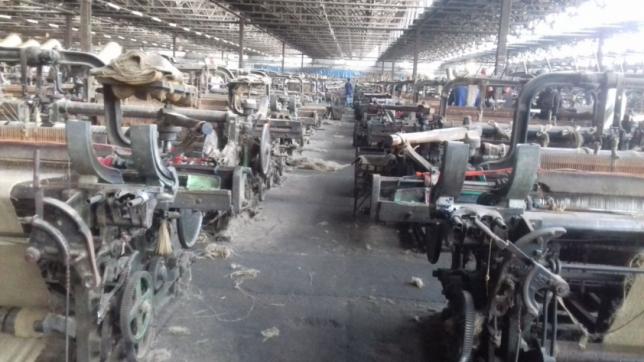Jute mills plagued by a dearth of raw materials

The nine state-owned jute mills in Khulna and Jashore are lagging way behind their production targets amid a shortage of raw materials.
Up until May 5, just around 29 percent of 2018-19’s purchase target of 7,48,596 quintals of jute has been met, which the mill authorities blame on a financial crisis.
Current stocks in the mills, seven in Khulna and the remaining two in Jessore, are set to last in a range from around five to 26 days.
These mills every day aimed to produce 272 tonnes of products -- mainly sack, hessian, carpet backing cloth and yarn -- this fiscal year, said Md Sazzad Hossain, Bangladesh Jute Mills Corporation’s (BJMC) liaison officer for Khulna.
But they are managing to churn out only 92 tonnes of products, meaning around 33 percent of the target, he added.
While 2,227 out of 3,650 handlooms have been left unused, the 1,423 that are running are facing complications for long.
Citing an example of the situation, SM Monirul Karim, project head of Platinum Jubilee Jute Mills, said they could meet only 19 percent of their purchase target for raw materials.
For this they are producing just 11 tonnes of products instead of the targeted 50 tonnes, he said.
Talking to The Daily Star, Dr Shahnewaz Nazimuddin Ahmed, a professor of economics at Khulna University, said good quality jute becomes available around June-July while the mills’ finances flow in around October-November.
While private jute millers avail the quality jute on time, the state-run mills have to go for those of lower grade at higher prices, he said.
“The authorities are having to invest Tk 800-900 more for every maund in the off-season. At the same time these mills suffer for quality jute,” said Ahmed.
“The BJMC needs to take pragmatic steps to buy raw jute during the peak season, produce goods which are on demand in the market and sell those off at the right time,” he said.
Acknowledging this, Md Sohrab Hossain, general secretary of Crescent Jute Mills’ collective bargaining agent, said the delay in purchasing raw jute was forcing factories to incur more losses.
“This subsequently increases the production costs and hamper smooth running of the mills,’’ he added.
